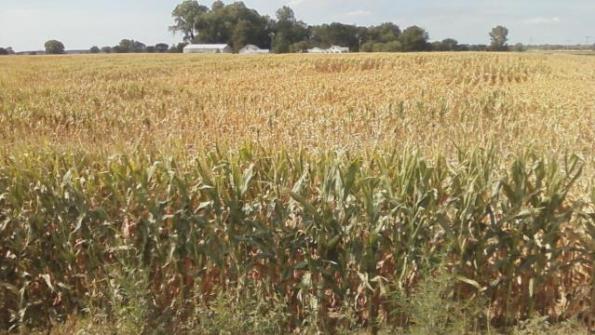Agriculture Secretary Tom Vilsack said the severity of the U.S. drought may be peaking, but the impact on corn and soybean crops may not be known until harvest, according to a report from Bloomberg News.
August 20, 2012

Agriculture Secretary Tom Vilsack said the severity of the U.S. drought may be peaking, but the impact on corn and soybean crops may not be known until harvest, according to a report from Bloomberg News.
Steadying weather conditions may ease pressure to relax federal requirements for the use of corn to make ethanol, he added in an interview at the Iowa State Fair.
“The overall impact of the drought is beginning to decline,” Vilsack said. Uneven dryness from farm to farm make crop predictions difficult this year.
The condition of the nation’s soybean crop improved last week for the first time this year, and corn’s good-to-excellent ratings leveled off at 23%, as rain and cooler temperatures reduced plant stress, the USDA reported.
Moreover, drought conditions are expected to persist in the Corn Belt and the Great Plains through November, the National Oceanic and Atmospheric Administration said in a report yesterday. Lower temperatures and rain expected in parts of the Corn Belt won’t be sufficient to break the drought that has caused grain prices to soar for months, said Joel Widenor, co-founder of Commodity Weather Group, LLC in Bethesda, MD.
Vilsack said as USDA assesses the size and condition of this year’s harvest, it is also starting work on the drought’s impact on the farm economy. His department is starting to look at the potential consequences for next year’s crops in terms of credit availability and planning.
Jose Graziano da Silva, director-general of the United Nation’s Food and Agriculture Organization, has called for a suspension of the U.S. ethanol mandate to free up more corn for food and livestock feed. White House Press Secretary Jay Carney indicated that the USDA and the Environmental Protection Agency are contemplating what action to take regarding requests for waivers from state governors and more than 175 members of Congress.
For his part, Vilsack said he fears that waiving the ethanol mandate may bring long-term harm to investment in biofuel production without producing much relief for food prices.
You May Also Like



